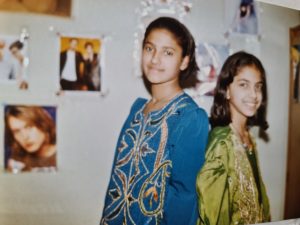Guest blog by Mina McPhee, Pan Intercultural Arts
Home…stop a minute and just savour that word. As I do so, I am bombarded by memories of people, time and place, colour, sound and smells – all SO uniquely connected to what is home for me. There can be few words, in any language, that have more emotional charge than ‘home’. Whoever you are and wherever you are, to think or hear the word is to evoke a barrage of feelings in each one of us.
How much greater is that emotion when, like me, you have been forced to leave your home far behind you and, perforce, start again, somewhere new and different; some place where you know no one, you don’t speak the language and you don’t understand the culture?
If each of us individually appreciates the immeasurable value of a home, the impact it has on our emotional and mental well being, then surely we see the moral imperative of helping others achieve that sense of belonging if, through no fault of their own, they have lost that lodestar called home which we all need to make us whole.
With these thoughts in mind, at Pan Intercultural Arts we have been thinking about how refugees in the UK are being made to feel at home in this new country. While the legislative and political environment has become ‘hostile’ there are still many, varied organisations (and individuals) who are working to help integrate refugees with the local communities that they work with. Taking this a step further we started to consider what the refugees themselves feel about how they are integrating into the UK; what has worked to make them feel at home, what have been the greatest obstacles and finally, perhaps most importantly, what more could be done to help make the integration of refugees easier.
What has arisen from all this is a desire to hear (and share) refugee voices vis à vis integration. We want to learn about the many experiences of settling in this country from as many people as possible, in particular about the obstacles to integration. We also want to hear from as many charities as possible about all the different ways in which they help refugees settle into and become integral parts of the local communities. At Pan we work through the arts, but if your charity runs dog walking groups, gardening groups, english classes, cooking classes or anything else that brings refugee groups and local communities together, we want to hear from you.
We are working towards a one day event in the autumn for refugee charities where we can hear from refugees about what would make the most difference in helping them to settle here, share best practices, tips and ideas about what works, and network with other charities and like-minded individuals.
Write to us at post@pan-arts.net to register your interest in this event and follow us on Linkedin and Instagram (@paninterculturalarts) to join in the conversation.
www.pan-arts.net
